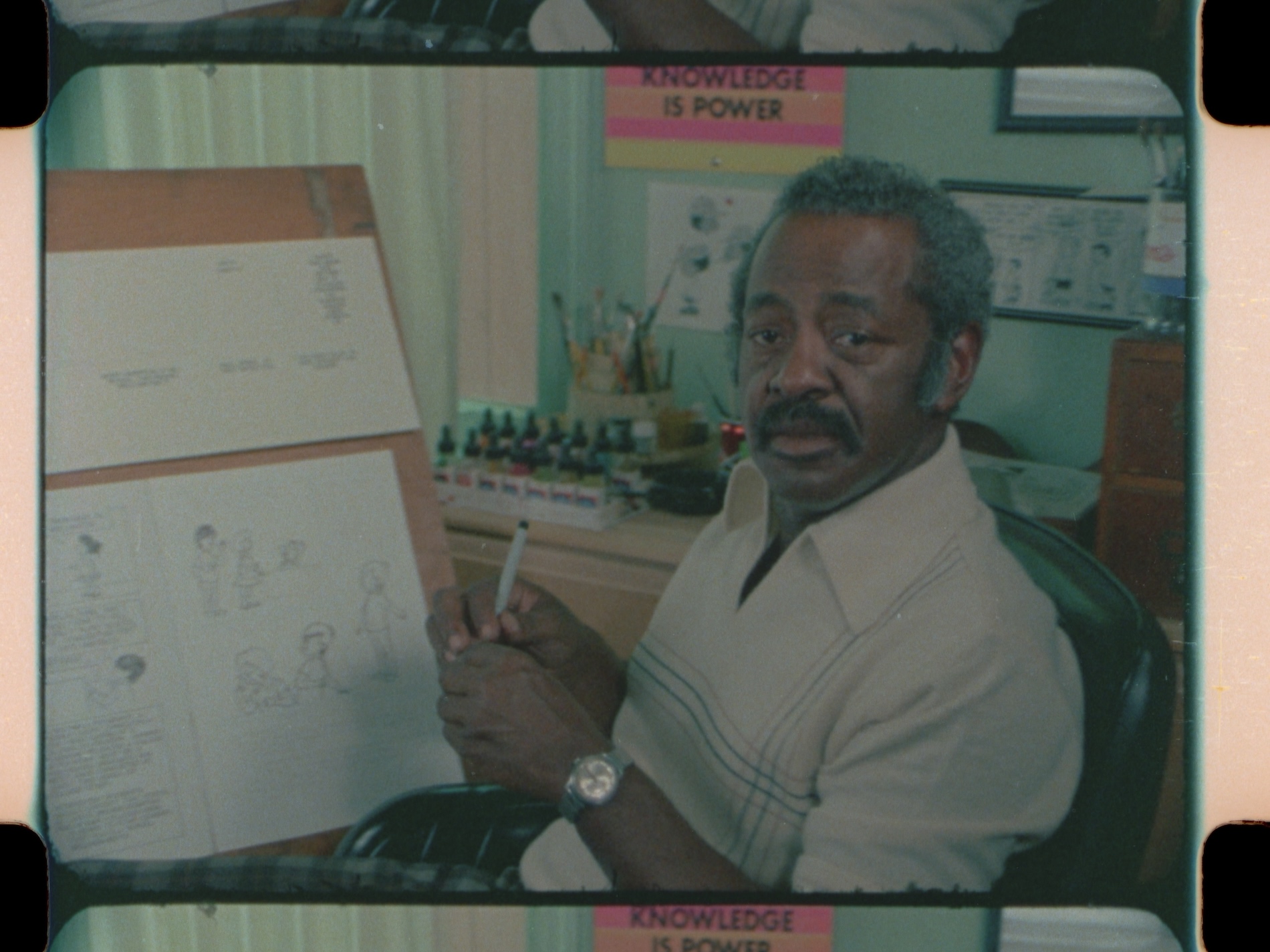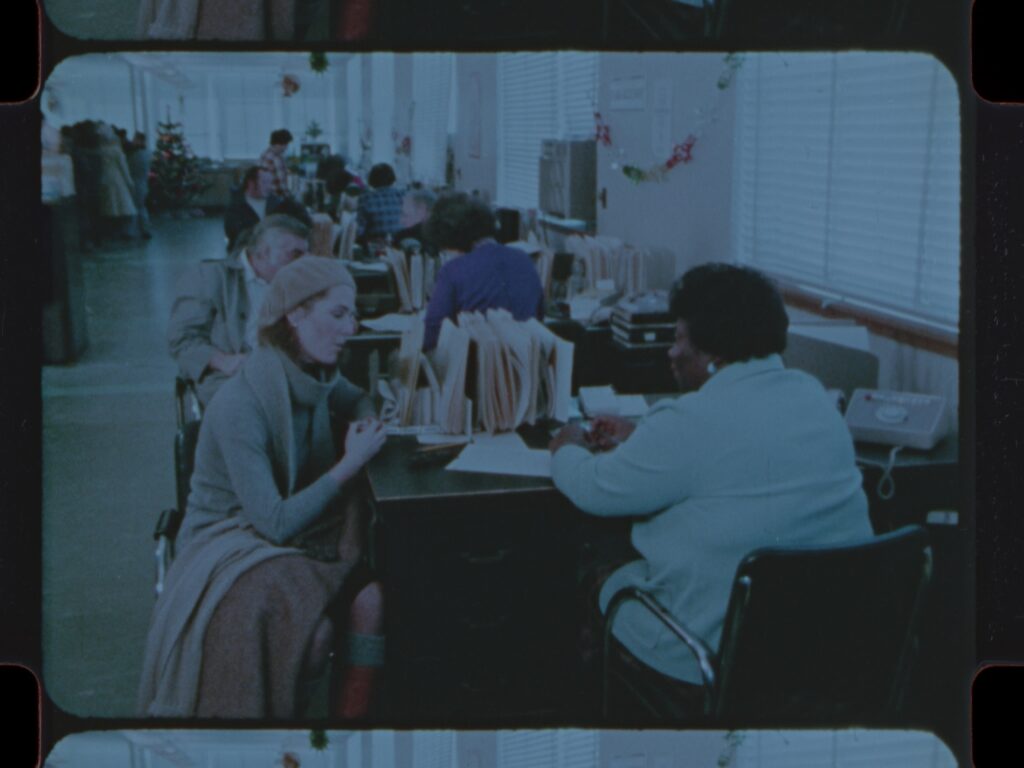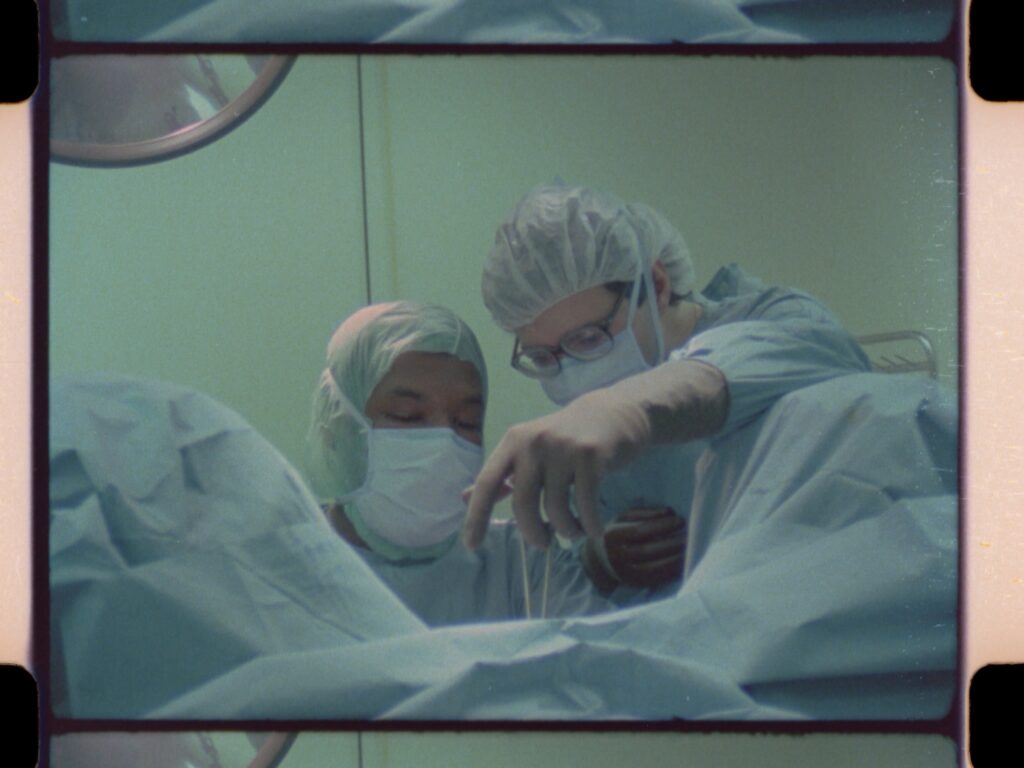
New Grant to Preserve Two Films from the Hampton Collection
The National Film Preservation Foundation (NFPF) has awarded WashU Libraries $9,192.30 to preserve two short films made by Henry Hampton’s Blackside, Inc., The Unemployment Test (1978) and Easy Street (1979). The films were directed by Jacqueline Shearer and sponsored by the federal government to promote the United States’ social welfare programs and improve health outcomes for African Americans. We are honored to restore these two rare pieces of underseen Black documentary history.
[Note: The film frames included are not the final restored versions that this grant will produce. They are from the original negative of Easy Street and the color reversal intermediate of The Unemployment Test, which explains the flat look of the former and the blue tint of the latter.]
While best known for its major PBS programs like Eyes on the Prize (1987 and 1990), Blackside also produced sponsored films for businesses and the United States government starting back in 1968. Organizations hired Blackside for its commitment to equity and social justice, which can be seen in the way Hampton ran his company. Blackside’s production of these various promotional films became an entryway into media production for young Black filmmakers.

Jacqueline Shearer (1946–1993) was a native of the Boston area. Before she worked for Blackside, Shearer made a short film, A Minor Altercation (1977), that dramatized the challenges of desegregating Boston schools. More than a decade later, Shearer returned to Blackside to co-direct two episodes of the second series of Eyes on the Prize. In addition to making documentaries, Shearer played an important role in getting them funded through her role as the President of ITVS.
In a 1992 interview, Shearer discussed how growing up in a working-class Black family in Boston made her keenly aware that race, class, and gender “always intertwine.” Her interest in making a more inclusive cinema is at the core of these two films despite them being works for hire.
The Unemployment Test is presented as a quiz to judge the audience’s knowledge about the welfare system, albeit one backed by a funky disco synth soundtrack. The film defends unemployment as a type of insurance that workers pay into instead of an unearned handout.

Easy Street was part of a larger effort to redress racial inequality in the healthcare system by inspiring Black and Latino teens to become nurses and doctors. The film follows four Black medical professionals—a pediatrics doctor, a respiratory therapist, a registered nurse, and a surgeon—as they go about their workday. The film argues that the best medical care is based on more than medicine, but instead relies on the bond between doctor and patient.
NFPF is an independent nonprofit supported by federal funds and is devoted to saving America’s diverse film heritage. This grant pays for creating new photochemical preservation elements and projection prints, which, as they will be on polyester stock, should survive for centuries. The grant also covers the cost of digitizing these titles, which will allow the Libraries to make them widely available to all. WashU Libraries are lucky enough to have original negatives and other production elements for these two shorts, which will result in a visual clarity that honors the efforts of Blackside and Jacqueline Shearer.
After the completion of this grant, the newly created film prints will be available for public screenings, and digitized versions will be placed online for streaming.
This is the fourth NFPF grant received by WashU Libraries to preserve Blackside’s short films. The previously preserved titles include 1972’s Code Blue, which like Easy Street was produced to increase the number of Black doctors and nurses; Listen to a Stranger: An interview with Gordon Park (1973), made to show students how one’s personal history informs a creative practice; and a 1980 sex-ed training film on male responsibility, A Matter of Respect.
